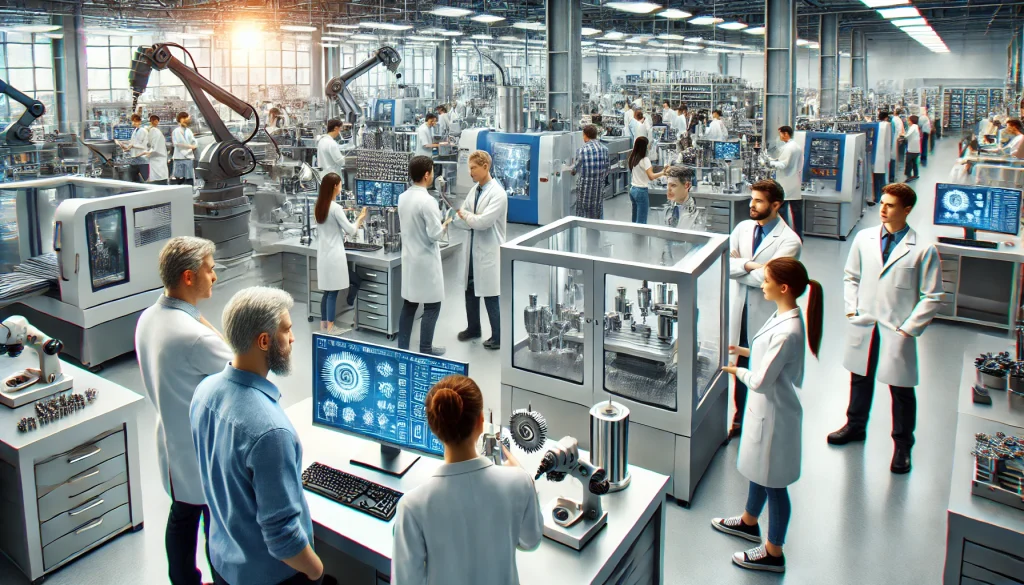14/07/2024
What is the importance of Technical Universities in the development of CNC Machine Tools?
Technical universities play a crucial role in the development of CNC machine tools, contributing through various academic, technical, and research-oriented avenues. Here is a detailed explanation:
Academic Contributions
- Curriculum Development:
- Technical universities design and offer specialized programs and courses in mechanical engineering, manufacturing engineering, and computer science. These programs provide foundational knowledge in mechanics, electronics, computer programming, and materials science, all of which are essential for the development and operation of CNC machine tools.
- Skill Development:
- Through hands-on training and laboratory work, universities equip students with practical skills in CAD (Computer-Aided Design), CAM (Computer-Aided Manufacturing), CNC programming, and machine operation. This practical exposure is vital for producing graduates who are ready to contribute to the CNC machine tools industry.
- Interdisciplinary Learning:
- Technical universities foster an interdisciplinary approach, encouraging collaboration between departments such as mechanical engineering, electrical engineering, computer science, and materials science. This holistic education approach is critical for the comprehensive understanding and innovation required in CNC machine tools development.
Technical Contributions
- Research and Development (R&D):
- Universities are at the forefront of R&D, conducting cutting-edge research in areas such as automation, robotics, AI, and advanced manufacturing techniques. This research leads to the development of new technologies and methods that enhance the capabilities of CNC machine tools.
- Innovation Hubs and Laboratories:
- Many technical universities host innovation hubs and advanced manufacturing laboratories equipped with the latest CNC machinery and software. These facilities provide a platform for experimentation, prototyping, and testing of new ideas, leading to technological advancements in CNC machines.
- Collaboration with Industry:
- Universities often collaborate with industrial partners, facilitating technology transfer and commercialization of research outcomes. These collaborations ensure that academic research addresses real-world challenges and meets the needs of the CNC machine tools industry.
Research Contributions
- Advanced Materials Research:
- Technical universities conduct extensive research on new materials and their machining properties. This research is crucial for developing CNC machine tools that can handle advanced materials like composites, ceramics, and superalloys, which are increasingly used in high-tech industries.
- Precision Engineering:
- Research in precision engineering, including the development of high-precision sensors, control systems, and machining techniques, is vital for improving the accuracy and reliability of CNC machine tools. Universities play a key role in advancing these technologies.
- Sustainable Manufacturing:
- Environmental sustainability is a major focus of contemporary research. Technical universities explore ways to make CNC machining more energy-efficient, reduce waste, and utilize sustainable materials. This research contributes to the development of eco-friendly CNC machine tools.
Academic and Industry Integration
- Knowledge Dissemination:
- Through publications, conferences, and seminars, technical universities disseminate knowledge and latest research findings to the broader academic and industrial community. This exchange of information accelerates innovation and the adoption of new technologies in the CNC machine tools industry.
- Workforce Development:
- By producing highly skilled graduates and professionals, technical universities ensure a steady supply of talent equipped with the latest knowledge and skills. This workforce is essential for driving innovation and maintaining the competitiveness of the CNC machine tools industry.
- Entrepreneurship and Start-ups:
- Universities often support entrepreneurship through incubators and accelerators, encouraging students and researchers to start their own ventures. Many innovative CNC technologies and solutions have emerged from university spin-offs and start-ups.
Conclusion
Technical universities are indispensable in the advancement of CNC machine tools through their comprehensive academic programs, cutting-edge research, and strong industry collaborations. They contribute to technological innovation, workforce development, and the creation of sustainable manufacturing practices, ensuring the continuous evolution and improvement of CNC machining technologies.


